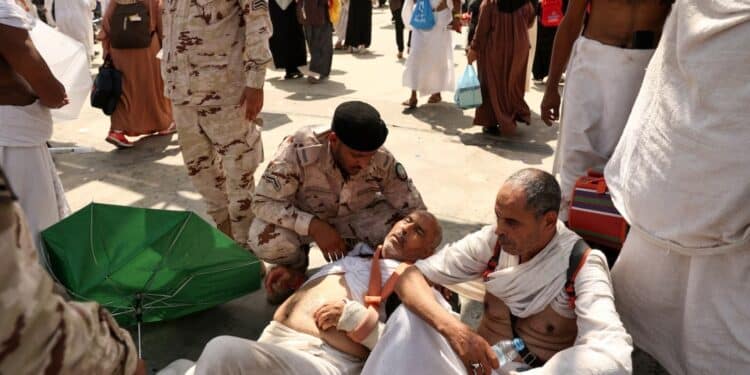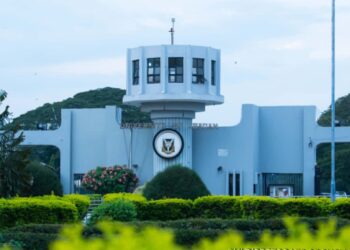Several days of extraordinary heatwave took a dastardly toll on the 2024 Hajj pilgrimage, with hundreds of pilgrims reported dead during the five days of religious activities in the desert of Saudi Arabia.
According to Agence France-Presse (AFP), the scorching heat in Saudi Arabia led to deaths among at least 600 Egyptians.
While putting the total figure at 922, according to a tally, many old and infirm, took part in the days-long, mostly outdoor pilgrimage, held this year during the oven-like Saudi summer.
“Relatives scoured hospitals and pleaded online for news, fearing the worst after temperatures hit 51.8°C in Mecca, Islam’s holiest city, on Monday.
Facebook and other social media networks have been flooded with pictures of the missing and requests for information.”
In addition to Egypt, fatalities have also been confirmed by Jordan, Indonesia, Iran, Senegal, Tunisia and Iraq’s autonomous Kurdistan region, though in many cases authorities have not specified the cause.
Despite reports that over 900 pilgrims died during the hajj pilgrimage in Muna, Makkah, the National Hajj Commission of Nigeria (NAHCON) has stated that only three Nigerians died during the period.
Speaking during the post-Arafat meeting in Makkah, NAHCON’s Head of the Medical Team, Abubakar Adamu Ismail, said the lower number was recorded due to adequate preparation.
While stating that 17 pilgrimage heat stroke during the period, he said they were able to be resuscitated due to their closeness to Nigeria’s hajj camp.
Meanwhile, Saudi Arabia has not commented on the death toll amid the heat during the pilgrimage, required of every able Muslim once in their life, nor offered any causes for those who died. However, hundreds of people had lined up at the emergency complex in the Al-Muaisem neighbourhood of Mecca, trying to get information about their missing family members.
Deaths are not uncommon at the Hajj, which has seen, at times, over two million people travel to Saudi Arabia. There have also been stampedes and epidemics throughout the pilgrimage’s history.
Each year, the Hajj draws hundreds of thousands of pilgrims from low-income nations, “many of whom have had little, if any, pre-Hajj health care,” according to an article in the April edition of the Journal of Infection and Public Health. Communicable illnesses can spread among the gathered masses, many of whom save their entire lives for the pilgrimage and can be elderly with preexisting health conditions, it said.
Fatalities of the Heatwave
However, the number of dead this year suggests something caused the fatalities to swell. Already, several countries have said some of their pilgrims died because of the heat that swept across the holy sites at Mecca, including Jordan and Tunisia.
Khalid Bashir Bazaz, an Indian pilgrim, speaking near the Grand Mosque on Wednesday, said he “saw a lot of people collapsing to the ground unconscious” during this year’s Hajj.
Temperatures on Tuesday reached 47 degrees Celsius (117 degrees Fahrenheit) in Mecca and the sacred sites in and around the city, according to the Saudi National Center for Meteorology. Some people fainted while trying to perform the symbolic stoning of the devil.
Many Egyptians said they lost track of their loved ones in the heat and the crowds. More than 1.83 million Muslims performed the Hajj in 2024, including more than 1.6 million from 22 countries, and around 222,000 Saudi citizens and residents, according to the Saudi Hajj authorities.
On Wednesday at the medical complex in Mecca, an Egyptian man broke down when he heard his mother was among the dead. He cried for some time before grabbing his cell phone and calling their travel agent.
“He left her to die,” he shouted, referring to the agent. The crowd tried to calm him down.
Security appeared tight at the complex, with an official reading out the names of the dead and the nationalities, which included people from Algeria, Egypt and India. Those who said they were kin of the dead were allowed inside to identify the deceased.
The AP could not independently confirm the causes of death for the people whose bodies were held at the complex. Saudi officials did not respond to questions seeking more information.
Saudi Arabia has spent billions of dollars on crowd control and safety measures for those attending the annual five-day pilgrimage, but the sheer number of participants makes ensuring their safety difficult.









